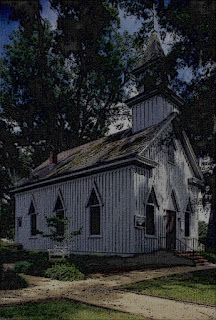Thoughts on Rick Bragg's "The Best of Who We Are": Not only with our lips, but in our lives...
Little children, let us love, not in word or speech, but in truth and action. 1 John 3:18
So, here’s my confession: I’ve never read any of Rick
Bragg’s books. I’ve definitely come across – and thoroughly enjoyed – some of
his humorous essays about life in the South from time to time.
Rick Bragg and I share a home state – Alabama. And although
he is a few years older than I am, we are, for all practical matters,
contemporaries.
Yet, no doubt, the lens through which we see life in the
South is entirely different, shaped by the very different experiences that we each
have had – him, as a white man, and me as an African American woman.
Several friends had suggested that I read his essay, “The
Best of Who We Are,” in the October 2017 issue of Southern Living, so I genuinely
looked forward to reading this piece.
The essay is a bit different than others of his essays. As
he points out himself, he’s not one to write about news or politics – usually
just the humor of everyday living in the South. But in this essay, Bragg took
on the recent protest in Charlottesville, explaining that Southerners should be
“angry to be dragged down among” the likes of the protesters because, he says,
that really isn’t who we are. Or, at least, it isn’t the best of who we are.
The best of who we are, Bragg reminisced, was in the sermons
that he heard in a tiny, all-white Baptist church in Alabama. There, he
commented, ministers preached about “loving your brother and sister... [and
helping] the sick and poor.” Those good lessons had followed him throughout his
life.
While Rick Bragg was hearing words about loving his neighbor
in his tiny, all-white church, elsewhere in the state of Alabama, I, too, was listening
to a message of love at my great-aunt’s Methodist church. Rev. Raymond Stephens
reminded a church filled with Black people that – despite the many negative
messages that we received in the world – we, too, were loved by God, and equal
in the eyes of God to anyone else. His sermon celebrating the Emancipation
Proclamation as the exodus from slavery in our country was one of the most
powerful messages that I heard as a child. Rev. Stephens’ messages of God’s
limitless love were powerful and inspirational.
I would guess that many Southerners of Bragg’s and my
generation heard our fair share of good messages of love in our churches. But did
we really hear and digest those messages? How did the Christians in Alabama and elsewhere who used the Bible to justify slavery and
segregation understand those messages? How did the Christian folks who
stood at church doors and a governor who stood at university doors, refusing to
allow people of color to come in, internalize those messages? Were the eight Alabama ministers who, in an open letter to Birmingham residents,
criticized Rev. Dr. Martin Luther King, Jr., and argued that peaceful protests
against segregation in Birmingham were “unwise and untimely,” sharing those messages in their churches? Could those
messages of love really have made their way to the people who were responsible
for bombing Birmingham’s 16th Street Baptist Church on September 15,
1963, taking the lives of four innocent African American girls whose only crime
had been going to church that Sunday morning?
I think that the moments that represent “the best of who we
are” aren’t the moments that come during good sermons, but instead are the
moments that come after – when, with transformed hearts and lives, we try to
apply those lessons of God’s love and mercy to the most difficult of life’s circumstances.
The best of who we are or can ever hope to be will come in the moments that we
stand together, hand in hand, supporting one another and fighting for justice
for all of God’s people. We’ve seen glimmers of that light, in Dallas and
Houston, in Wichita, in Charleston, when men and women, white and Black, Latino
and Asian, have come together to work through grief, frustration and sadness.
Those are the moments that give me the greatest hope.
I wish that more people had experienced the sermons of Rick
Bragg’s minister and Rev. Raymond Stephens; the world would be a better place
if those lessons of love touched every heart.
But only in moving beyond mere words will we see “the best
of who we are.” If we all begin sowing those seeds of love that came to us in
those great sermons, we can bring forth harvests that choke out hate – and we
can live together in peace, support one another, and promote justice for all
human beings.
